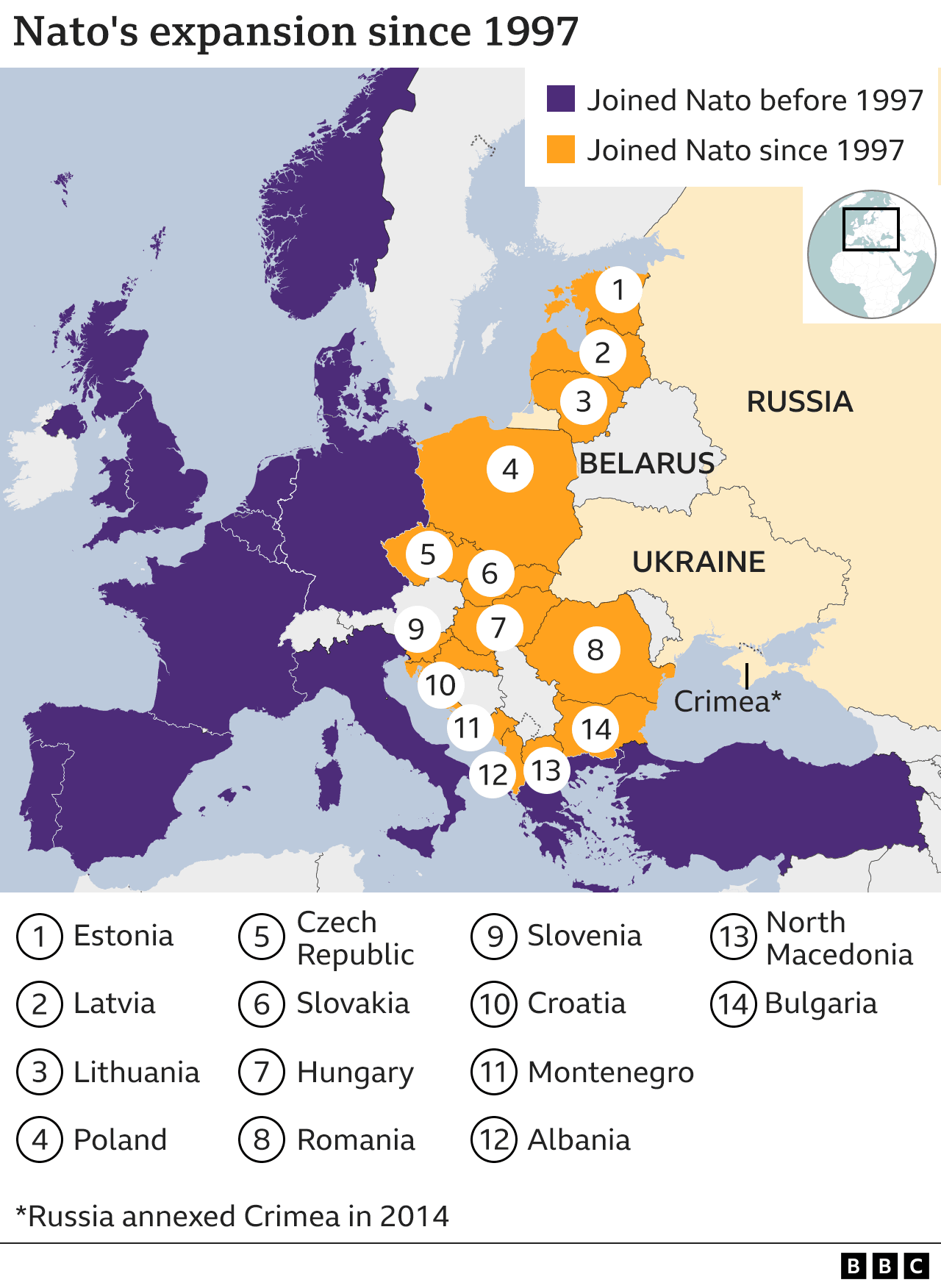No, NATO is not responsible for the Ukrainian War
Recently I’ve read the argument that NATO is (partly) to blame for the Russian invasion of Ukraine due to its eastward expansion damaging Russia’s vital interests, including from some Western journalists like this piece in the The Guardian or this in The New York Times.
Consider for a moment the principle of state sovereignty - a principle dating back to the Westphalian peace of 1648 and today encoded in the United Nations Charter - that holds that each state has the supreme power of authority in its own borders. This would also apply to the decision of joining NATO, which has been the free choice of all the countries involved in the eastwards expansion.
Now, one might say that a small country like Estonia does have some sovereignty, but they also need to take into account the geopolitical realities of being located next to a major power. Let’s look at the populations of the countries who’ve joined NATO since 1997.
 Expansion of NATO, BBC
Expansion of NATO, BBC
- Estonia - 1.3M
- Latvia - 1.9M
- Lithuania - 2.8M
- Poland - 38M
- Czech - 10M
- Slovakia - 5.5M
- Hungary - 9.75M
- Romania - 20M
- Slovenia - 2M
- Croatia - 4M
- Montenegro - 0.6M
- Albania - 2.8M
- North Macedonia - 2M
- Bulgaria - 7M
Total: 107M people. That’s roughly the same ballpark as the Russian population, with Ukraine included it’d be more than that.
Notice how all these countries made the same decision - rather than wanting to join e.g. the Russian-backed CSTO. Practically, this means that Russia has already lost the economic and cultural competition with the West in Eastern Europe, and can now only resort to brute force in dominating its neighbours (e.g. Moldova, Georgia, Ukraine already before 2022). That these countries belong to NATO takes away even that ability, which is what all the fuss is about. It’s obvious that the Baltics don’t threaten Russia in any way even in NATO, the real issue is that Russia’s power projection on these vestigial pieces of the old Empire is now significantly less effective.
So agreeing with the first argument above is essentially the same as saying that Russia’s interests outside their borders, their right to maintain a sphere of influence overrides the interests of a multitude of sovereign nations (similarly sized as Russia on aggregate) on choosing their future. It’s saying that the national humiliation from losing an empire is something we should empathize with. It’s saying that a bully has the right to strongarm other kids on the playground just because he’s bigger. Obviously there’s some geopolitical reality to this, but that doesn’t mean we should morally normalize it.
Call me an idealist, but I don’t think such a cynical argument should have credence in 21st century Europe.